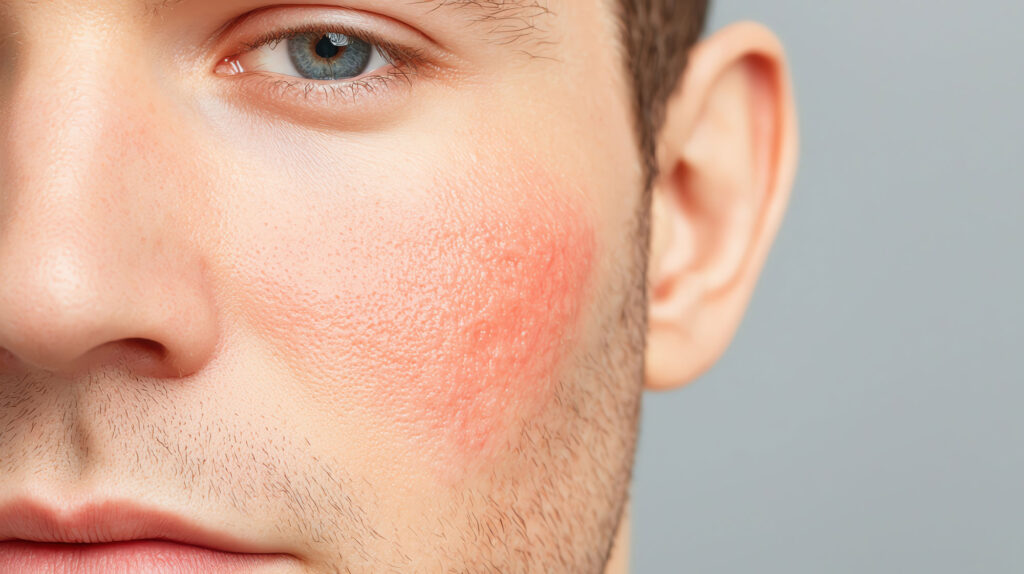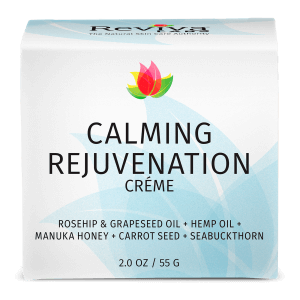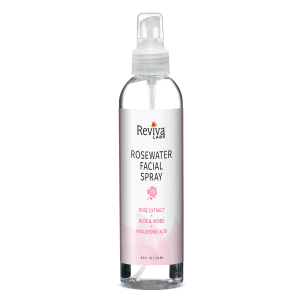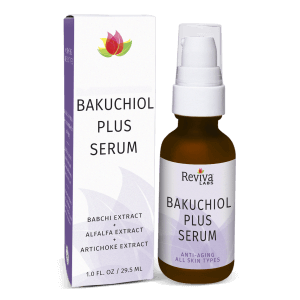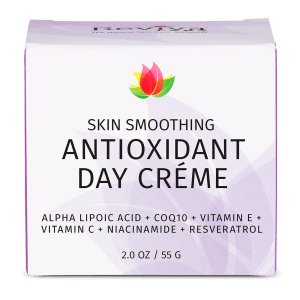Reviva Labs, Skin Care
How Do You Get Rid of Red, Inflamed Skin Fast?
Red, inflamed skin isn’t just a cosmetic issue—it can affect your confidence and comfort, too. Whether it’s triggered by an allergic reaction, environmental factors, or a skincare mishap, calming your skin quickly is the ultimate goal. Let’s explore effective strategies for reducing redness, restoring balance, and bringing your skin back to its natural glow.
Understanding the Causes of Red, Inflamed Skin
Before diving into remedies, it’s crucial to identify what might be causing the inflammation. Redness is often the result of increased blood flow to the skin, part of the body’s natural defense system. But while the immune response is vital for healing, it can sometimes overreact, leading to visible redness and discomfort.
Triggers like overexposure to the sun, harsh weather, or an allergic reaction can initiate redness almost instantly. For others, chronic conditions such as rosacea or eczema may be the culprit. Even everyday habits—like using overly abrasive exfoliants or skipping moisturizer in dry climates—can leave your skin irritated. By pinpointing the cause, you’ll have a clearer path toward effective relief.
Quick Ways to Calm Redness
When your skin feels inflamed, time is of the essence. Start by cleansing your face with lukewarm water and a gentle, non-foaming cleanser. Hot water is tempting, especially in colder months, but it can exacerbate redness by dilating blood vessels. Pat your skin dry gently with a soft towel—rubbing will only worsen irritation.
Reach for cooling agents like aloe vera or cucumber-based gels. Both ingredients are known for their soothing properties and work wonders when applied to freshly cleansed skin. Aloe vera, in particular, has anti-inflammatory benefits that target redness at its source. If you’re using an aloe vera gel, ensure it’s free from alcohol or artificial fragrances, as these can further irritate the skin.
Another option is to create a makeshift cold compress. Soak a clean cloth in cold water, wring it out, and apply it to the affected area. The cooling effect not only reduces redness but also helps soothe the discomfort often associated with inflammation. If you have green tea at home, steep a bag, let it cool, and use it as a compress. Green tea contains polyphenols that have been shown to reduce redness and inflammation.
Ingredients That Heal and Soothe
Certain natural ingredients have stood the test of time for their ability to calm irritated skin. Chamomile is a classic choice, frequently included in calming skincare formulations due to its anti-inflammatory and antioxidant properties. When applied topically, it not only reduces redness but also promotes healing.
Calendula is another powerhouse ingredient. Derived from marigold flowers, it’s been used for centuries to treat skin irritation. Products infused with calendula can hydrate, protect, and repair the skin barrier, making it particularly effective for sensitive skin types.
For hydration and repair, hyaluronic acid is a must-have. While it’s often celebrated for its anti-aging properties, hyaluronic acid is also excellent for calming red skin by replenishing moisture and fortifying the skin’s barrier. The barrier acts like your skin’s natural shield, keeping irritants out and essential hydration in.
Everyday Habits That Help
Managing red, inflamed skin isn’t only about emergency fixes—it’s about building habits that support a healthy complexion. Start with the basics: hydration and protection. Drinking plenty of water throughout the day ensures your skin stays hydrated from the inside out. A well-moisturized complexion is less prone to irritation and redness.
Sun protection is equally important. Even on overcast days, UV rays can aggravate sensitive skin. Use a broad-spectrum sunscreen with at least SPF 30 and consider formulas with physical blockers like zinc oxide or titanium dioxide, which are less likely to irritate. Many modern sunscreens also incorporate soothing agents like niacinamide to address redness directly.
Sleep and stress management are often overlooked but play significant roles in skin health. Lack of sleep can trigger inflammation, while stress hormones like cortisol can weaken the skin barrier. Incorporating relaxation techniques, from yoga to meditation, may reduce flare-ups over time.
What to Avoid When Skin is Inflamed
It’s easy to focus on what you should do to calm your skin, but avoiding common mistakes is just as important. Scrubs, chemical exfoliants, and products containing alcohol are common culprits. Even if your skin feels greasy or clogged, resist the urge to over-cleanse. Stripping your skin of natural oils often leads to more redness as the barrier becomes compromised.
Fragrance-heavy products can also aggravate redness. Opt for fragrance-free skincare, especially when dealing with inflamed or sensitive skin. Similarly, skip makeup if possible. Layering foundation or concealer over irritated skin may temporarily mask redness, but it can exacerbate the problem in the long term.
Frequently Asked Questions
How long does it take for redness to go away?
This depends on the severity of the redness and its cause. Mild irritation, such as redness from sun exposure, can improve in a few hours with proper care. Chronic conditions like rosacea may require ongoing management.
Can redness be prevented?
While you can’t control every trigger, many cases of redness can be avoided by maintaining a healthy skin barrier, staying hydrated, and protecting your skin from extreme temperatures and UV exposure.
What should I do if redness persists?
If redness doesn’t improve within a few days or worsens, consult a dermatologist. Persistent redness may be a sign of an underlying condition like rosacea or eczema that requires professional treatment.
Are natural remedies effective?
Natural ingredients like aloe vera, chamomile, and calendula are highly effective for soothing red, inflamed skin. However, always patch-test new products to ensure compatibility with your skin type.
The Bigger Picture: Consistency Is Key
Treating red, inflamed skin isn’t just about quick fixes; it’s about creating a consistent routine that prioritizes gentle, effective care. Choose products with calming, hydrating ingredients and avoid harsh formulas. Whether it’s through diet, skincare, or sun protection, each small step contributes to healthier, more resilient skin. With time, your complexion will not only recover but thrive.



